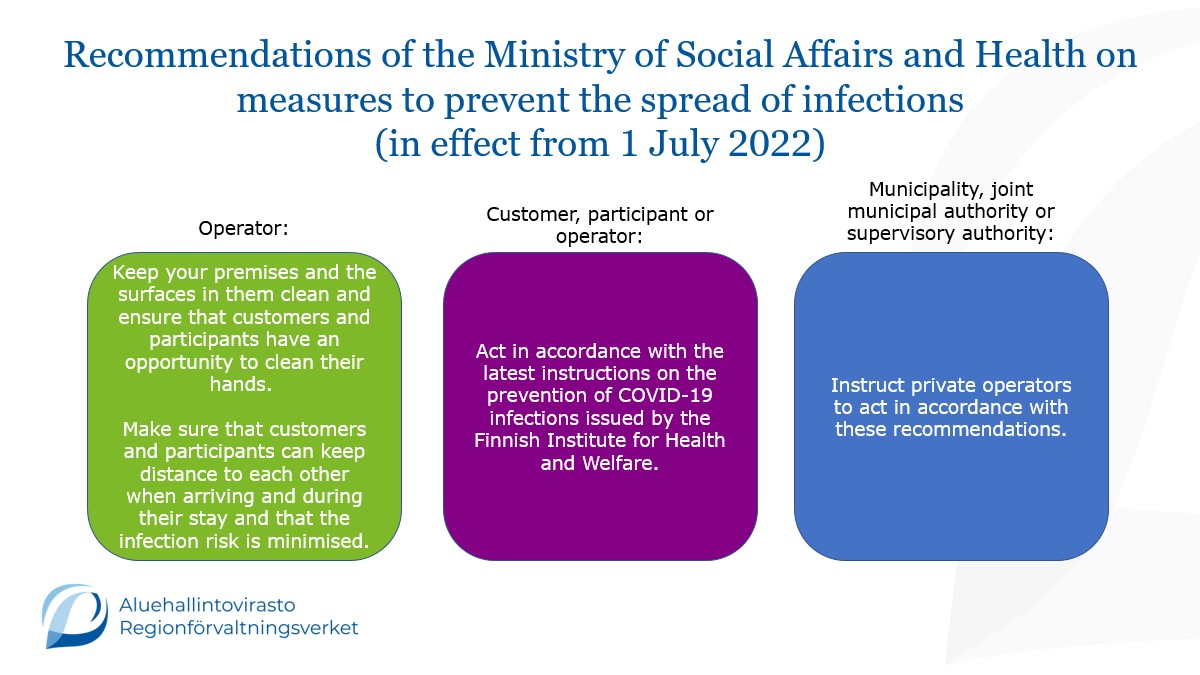Under the Communicable Diseases Act, the Regional State Administrative Agency may decide on corona restrictions concerning:
- public events and general meetings
- imposing safe distances in customer premises
- closure of customer facilities used for sport and recreational activities
- use of school facilities
- the organisation of health examinations.
NB. The Regional State Administrative Agency does not decide on corona restrictions for restaurants. Restrictions on restaurants are made by the Government decree. More information on corona restrictions for restaurants can be found in the section Restaurants, cafés, bars and other food services.
Below, you can find a summary of the restrictions imposed by different Regional State Administrative Agencies.
Public events and general meetings
Who is affected by it: Anyone who organises public events and public meetings.
The Regional State Administrative Agency may impose restrictions on the number of participants in public events and public meetings.
Ensuring safe distances in customer premises
Who is affected by it: Private communities, foundations and other legal entities (excluding restaurants), private traders, municipalities and joint municipal authorities, religious communities and institutions governed by public law.
A Regional State Administrative Agency may order that safe distances are imposed in certain customer and business premises.
Closure of customer premises and facilities
Who is affected by it: Certain facilities used for exercise, sports or recreational activities.
The Regional State Administrative Agency may order the closure of certain customer and business premises used for exercise, sports or recreational activities.
Note: Some operators may be subject to both the order to avoid close contact and the order to close the premises. Examples:
1. Gyms are the premises of a private entrepreneur or a legal entity but they are also used for exercise or sports activities. This means that gyms are subject to both the decision on safe distances and closures.
2. Stores are the premises of a private entrepreneur or a legal entity but they are not used for exercise, sports, or recreational activities. This means that stores are only subject to the decision on safe distances.
Use of school facilities
Who is affected by it: Primary and secondary schools, upper secondary schools and vocational schools
The Regional State Administrative Agency may make a decision on the closure of school facilities if this is necessary in several municipalities. The decision may target a certain grade or level of education.
Health examinations
1. Organising health examinations
Who is affected by it: Municipalities
The Regional State Administrative Agency may order the municipality to organise health checks in its area, for example at border crossing points.
2. Participation in a health examination
Who is affected by it: Persons mentioned in the decision, for example passengers from high-risk countries
The Regional State Administrative Agency may order that participation in a health examination is compulsory for example at border crossing points. As part of a health check, the person may be obligated to take a corona test or quarantine.

